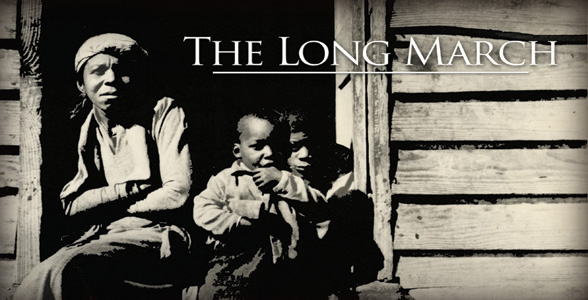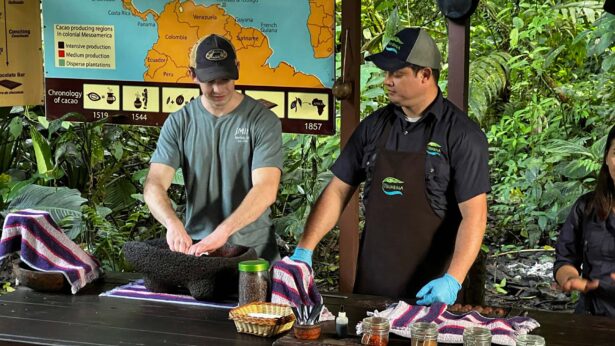By Anna Montgomery
In 2008, an unlikely group composed of two UT Knoxville students and their professor, all white males, and a black female film producer on a shoestring budget completed an internationally recognized award-winning documentary film that would be broadcast nationwide the next year on PBS.
While working on their journalism and electronic media degrees, Tre Berney (’08) and Josh Richard (’08) collaborated with Associate Professor Bob Legg and Knoxville–based producer Jane Barr (’06) on what became The Long March, a documentary exploring the American civil rights movement.
“When dealing with race and class in America, people tend to tread lightly, but I felt comfortable enough with Tre and Josh to be honest, and so did they,” says Barr, who graduated from UT Knoxville in political science and African American studies.
Barr, a first-generation American whose parents came to the US from Ghana, explained that the unconventional collaboration was a strength. “There aren’t many black women who would make a civil rights documentary with two young white men, but I wouldn’t trade the experience. Our discussions were invaluable to the process.”
Berney, the film’s director, calls Barr “the defining force in the making of the film.”
“Josh and I had a blast filming interviews with these amazing people,” Berney says. “Dr. Legg was the reason it all happened—providing guidance, equipment, and unqualified support.”
With help from the university, production company Jupiter Entertainment, and their own and their families’ funds, the quartet traveled around the country—as well as in Tanzania and Ethiopia—to research events and interview civil rights leaders, historians, and multicultural education experts.
Traveling to Atlanta, the group met with civil rights pioneers C. T. Vivian and Andrew Young in Vivian’s home.
“The civil rights movement is their life,” Barr says. “They raised their children through it, lost friends, paid taxes, lived their lives.
“Martin Luther King Jr. is definitely always with them, and I think we could all feel him in the room that day. For the people who lived through that time and knew him personally, there is not a day they don’t think of him.”
Young, Georgia’s first African American congressman and Atlanta’s former mayor, was so impressed with the UT group that he asked them to accompany him to Tanzania for the Leon H. Sullivan Summit, which brings together influential African Americans and African leaders to foster a more peaceful and prosperous Africa.
After the group met some Tanzanian children who stole their hearts, they were appalled to realize the youngsters lived in a waste dump. “You cannot remain unchanged when you see that,” says Legg.
All these experiences informed the student-directed documentary, which touched people around the world when it was shown on PBS in 2009.
Barr believes their film resonated with viewers because they engaged the civil rights conversation from a different angle. “I thought it was a story that needed to be told because our issues with education, race, and class continue to plague us, with no end in sight.”
As Young remembers MLK Jr. saying, “We have to find a better way.” And for the American civil rights movement, the long journey continues.



